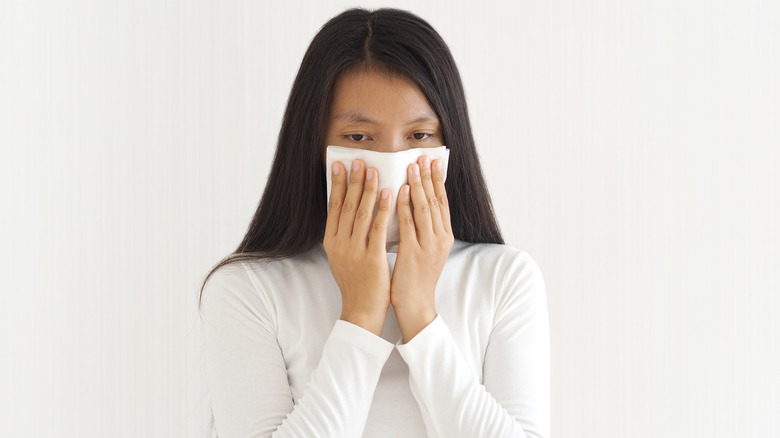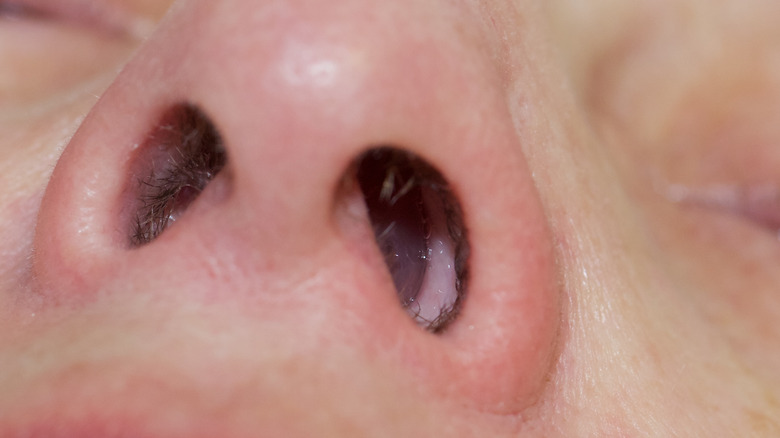How To Treat And Prevent Allergy-Triggering Nasal Polyps
Nasal polyps are soft, non-cancerous growths that appear on the inside of the nose or sinuses. These sac-like growths can occur for a number of reasons. According to Healthline, the mucosa, a lining inside the nose that's very wet, helps protect the nose and sinuses. However, when allergy-related irritation or an infection is present, it can turn the mucosa red and cause swelling. When irritation lasts a long time, nasal polyps may form in the mucosa and block the nasal passages. Asthma, sensitivity to aspirins, cystic fibrosis, hay fever, also known as allergic rhinitis, and chronic or recurring sinus infections may trigger the development of nasal polyps.
If you have a nasal polyp, there are a variety of symptoms you may experience. Cedars-Sinai reports that nasal polyps feel like you have a prolonged cold. Postnasal drip, runny nose, reduced sense of smell, and congestion are some symptoms of nasal polyps. Typically, you shouldn't be seeing any green or yellow mucus. However, it is possible if an infection is present.
Treatment and prevention for nasal polyps
To determine if a person has nasal polyps, a doctor commonly uses a nasal endoscope, a small, thin telescope with a camera and light on one end, to look inside the nose. According to Mayo Clinic, treatment for nasal polyps is usually some type of medication, such as nasal, oral, or injectable corticosteroids. An injection to help reduce the size of the polyp and the amount of congestion may also be considered. Removal of the polyps completely is an option if other medications were not successful. In order to remove nasal polyps, endoscopic surgery may take place in which an endoscope is used to find the polyps. During the outpatient procedure, a surgeon will remove the polyps with the proper instruments.
Nasal polyps are not 100% preventable, but there are steps you can take to help prevent them from happening to you. Cleveland Clinic reports using a humidifier aids your nasal passages by giving them moisture. A saline spray or rinse is also helpful in preventing nasal polyps, as the solution removes allergens and other irritants. Additionally, avoid breathing in allergens and other irritants you're sensitive to, and always follow your doctor's recommendations for treatment.

